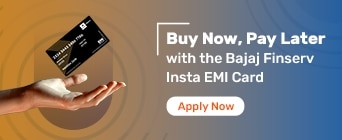Choosing between the iPhone 11 vs iPhone 12 can be challenging since both models offer impressive features and performance. While the iPhone 11 was a bestseller for its balance of price and power, the iPhone 12 brought significant upgrades including 5G support, a better display, and a refreshed design. This article compares these two popular iPhones in detail to help you decide which one fits your needs and budget.
The iPhone 12 upgrades the display to OLED with higher resolution and contrast, introduces 5G connectivity, and improves water resistance. Here’s a detailed comparison of the key specifications of the iPhone 11 and iPhone 12 to highlight their main differences:
Specification |
iPhone 11 |
iPhone 12 |
Display |
6.1-inch Liquid Retina HD LCD |
6.1-inch Super Retina XDR OLED |
Resolution |
1792 x 828 pixels (326 ppi) |
2532 x 1170 pixels (460 ppi) |
Processor |
A13 Bionic |
A14 Bionic |
Storage Options |
64GB, 128GB |
64GB, 128GB, 256GB |
Rear Cameras |
Dual 12MP (Main, Ultra Wide) |
Dual 12MP (Main, Ultra Wide) |
Front Camera |
12MP TrueDepth |
12MP TrueDepth |
Battery Life |
Up to 17 hours video playback |
Up to 17 hours video playback |
Water Resistance |
IP68 (2 meters for 30 mins) |
IP68 (6 meters for 30 mins) |
Connectivity |
4G LTE |
5G LTE |
Weight |
194 grams |
164 grams |
Operating System |
iOS 13 (upgradable) |
iOS 14 (upgradable) |
While the iPhone 11 has rounded edges, the iPhone 12 is lighter and smaller with flat edges. It also has a Ceramic Shield on the front glass for better durability. Both phones have a glass front and back with an aluminum frame, but the iPhone 12 features a new design language.
Feature |
iPhone 11 |
iPhone 12 |
Dimensions (H x W x D) |
150.9 x 75.7 x 8.3 mm |
146.7 x 71.5 x 7.4 mm |
Weight |
194 grams |
164 grams |
Frame Material |
Aluminum |
Aluminum |
Front Glass |
Gorilla Glass |
Ceramic Shield |
Colors Available |
Purple, Yellow, Green, Black, White, Red |
Black, White, (PRODUCT)RED, Green, Blue |
Water Resistance |
IP68 (2 meters for 30 mins) |
IP68 (6 meters for 30 mins) |
Both models feature dual 12MP cameras with wide and ultra-wide lenses, but the iPhone 12 brings some subtle improvements. It has a wider aperture (f/1.6) for better low-light photography, with Night mode extended to the ultra-wide and front cameras.
Feature |
iPhone 11 |
iPhone 12 |
Rear Cameras |
12MP Main (f/1.8), 12MP Ultra Wide (f/2.4) |
12MP Main (f/1.6), 12MP Ultra Wide (f/2.4) |
Night Mode |
Available on Main and Front |
Available on Main, Ultra Wide, and Front |
Deep Fusion |
Yes |
Yes |
Optical Image Stabilisation |
Yes |
Yes |
Video Recording |
4K up to 60fps, extended dynamic range |
4K up to 60fps, Dolby Vision HDR up to 30fps |
Front Camera |
12MP, Night mode |
12MP, Night mode |
Apple’s A14 Bionic chip powers the iPhone 12, offering a performance boost over the iPhone 11’s A13 chip. It is faster and more power-efficient, making the iPhone 12 better suited for demanding apps and future-proofing with 5G. Both phones have a similar battery life.
Feature |
iPhone 11 |
iPhone 12 |
Chipset |
A13 Bionic |
A14 Bionic |
Battery Life (Video playback) |
Up to 17 hours |
Up to 17 hours |
Battery Life (Audio playback) |
Up to 65 hours |
Up to 65 hours |
Charging |
Fast charging with 20W, Qi wireless charging |
Fast charging with 20W, Qi & Qi2 wireless charging with MagSafe support |
Connection |
Lightning (Supports USB 2) |
Lightning (Supports USB 2) |
Both iPhones run iOS and support the latest updates, but the iPhone 12 introduces some new hardware features. Its MagSafe system allows magnetic attachment of accessories and wireless chargers, enhancing convenience and expanding accessory options.
Feature |
iPhone 11 |
iPhone 12 |
Operating System |
iOS 13 |
iOS 14 |
Biometric Security |
Face ID with TrueDepth camera |
Face ID with TrueDepth camera |
Display Features |
Liquid Retina HD LCD, True Tone, Haptic Touch |
Super Retina XDR OLED, HDR, True Tone, Haptic Touch |
Connectivity |
Wi-Fi 6, Bluetooth 5.0, Gigabit LTE, Ultra Wideband |
Wi-Fi 6, Bluetooth 5.0, Gigabit LTE, Ultra Wideband, 5G support |
Other Features |
Spatial audio, Dolby Atmos, no Apple Intelligence |
Spatial audio, Dolby Atmos, no Apple Intelligence |
The iPhone 11 remains more affordable, while the iPhone 12 commands a premium for its upgrades like the OLED display and 5G connectivity.
Model |
Storage |
Price |
iPhone 11 |
64GB |
₹43,900 |
iPhone 11 |
128GB |
₹48,900 |
iPhone 12 |
64GB |
₹49,900 |
iPhone 12 |
128GB |
₹54,900 |
iPhone 12 |
256GB |
₹64,900 |
Disclaimer: Prices mentioned are approximate and may vary as per configuration, region, and available offers. Please check Apple’s official website for up-to-date pricing.
The iPhone 11 vs iPhone 12 debate centers on whether you value the iPhone 12’s advancements enough to pay extra. The iPhone 12 offers a superior OLED display, 5G support, improved durability with Ceramic Shield, and better low-light camera performance. Its lighter, more compact design and MagSafe accessories add to its appeal.
However, the iPhone 11 remains a solid choice with excellent performance, a capable dual-camera system, and a lower price point. If budget is a priority and you don’t require 5G or OLED display, the iPhone 11 is still highly relevant.
Purchasing your iPhone 11 or iPhone 12 with the Bajaj Finserv Insta EMI Card comes with multiple benefits:
High Card Loan Amount: Get quick approval for up to ₹3 Lakhs with minimal documentation to make any expensive purchase affordable.
Flexible Easy EMIs: Convert your purchase into convenient Easy EMIs with flexible repayment tenures and zero-interest offers.
Wide Acceptance: Use the card at more than 1.5 lakh partner stores across 4000+ Indian cities, as well as any major online platform.
Zero Down Payment: Buy your preferred iPhone without any upfront payment thanks to exclusive schemes and special offers available for limited periods.
Easy Online Application: You can easily apply for the Insta EMI Card online, thanks to a quick application process that can be completed in minutes.
These benefits make upgrading to the iPhone 12 or buying the iPhone 11 easier and more affordable.
Related to Bajaj Finserv EMI Network Card
- EMI Card
- Bajaj Finserv EMI Network Card Login
- Bajaj Customer Portal
- Apply for Bajaj Finserv Insta EMI Card
- Eligibility For Bajaj Finserv EMI Network Card
- Bajaj Finserv EMI Network Card Benefits
- Bajaj Finserv EMI Network Card Charges
- Bajaj Finserv EMI Network Card Offers
- Bajaj Finserv Partner Stores
- No Cost EMI
- EMI Without Credit Card
- EMI Card VS Credit Card
- Bajaj Finserv EMI Network Card Accepted Shops
- Check EMI Network Card Details
- Bajaj Finserv EMI Network Card Statement
- Bajaj Finserv EMI Network Card Cash Withdrawals
- Bajaj Finserv EMI Network Card Limit
- Bajaj Finserv EMI Network Card Status
- EMI Network Card FAQs
- Unblock EMI Network Card
- Interest on EMI Network Card
Manage your EMI Network Card
- How to Activate Bajaj Finserv EMI Network Card?
- How to Increase Bajaj Finserv EMI Network Card Limit?
- How to Use Bajaj Finserv EMI Network Card?
- How to get Bajaj Finserv EMI Network Card number?
- How to Check EMI Network Card Balance?
- How to Change the Bajaj Finserv EMI Network Card Pin?
- How to Get the Bajaj Finserv EMI Network Card Pin?
- How to Change the Registered Bajaj Finserv EMI Network Card Phone Number?
- How to Check the Bajaj Finserv EMI Network Card CVV Online?
- How Does No Cost EMI Work?
- No Cost EMI at Amazon
- No Cost EMI At @Home
- No Cost EMI at Flipkart
- No Cost EMI Goibibo
- No Cost EMI at Hometown
- No Cost EMI at MMT
- No Cost EMI at Xiaomi
- No Cost EMI at Oneplus
- No Cost EMI at Oppo
- No Cost EMI at PayTm
- No Cost EMI at Pepperfry
- No Cost EMI at Realme
- No Cost EMI at Samsung
- No Cost EMI at Vivo
- No Cost EMI at Yatra
Shop for products on EMI
- Laptops on EMI
- Mobile on EMI
- iPhone on EMI
- AC on EMI
- Cycle on EMI
- Furniture on EMI
- HP Laptop on EMI
- iPhone 13 on EMI
- TV on EMI
- Dell Laptop on EMI
- Inverter on EMI
- Washing Machine on EMI
- Camera on EMI
- Flight Tickets on EMI
- Computer on EMI
- iPad on EMI
- Electronics on EMI
- Macbook on EMI
- Refrigerator on EMI
- Modular Kitchen on EMI
- Printer on EMI
- Sofa on EMI
- Travel on EMI
- Macbook Air on EMI
- Tour Packages on EMI
- Tyre on EMI
- Apple Watch on EMI
- Iphone XR on EMI
FAQs
What is the major difference between iPhone 11 vs iPhone 12?
The iPhone 12 features a superior OLED display, 5G connectivity, a more powerful A14 chip, improved water resistance, and MagSafe accessories, while the iPhone 11 has an LCD display and 4G support.
Is iPhone 12 worth more than iPhone 11?
Yes, the iPhone 12 is priced higher due to its upgraded display, 5G capability, better camera features, and enhanced durability.
Is the iPhone 12's battery life significantly better than the iPhone 11?
No, both offer similar battery life for video playback, but 5G usage on the iPhone 12 can reduce battery endurance.
How does the display quality of the iPhone 12 compare to the iPhone 11?
The iPhone 12 has a 6.1-inch OLED Super Retina XDR display with higher resolution and contrast, while the iPhone 11 uses a 6.1-inch LCD Liquid Retina display.
Are there any new features in the iPhone 12 not available in the iPhone 11?
Yes, the iPhone 12 supports 5G, has Ceramic Shield front glass, MagSafe accessory support, and Dolby Vision HDR video recording.
Is the iPhone 12 worth the upgrade from the iPhone 11?
If you want a better display, 5G connectivity, and improved camera features, the iPhone 12 is worth the upgrade. Otherwise, the iPhone 11 remains a great value.






